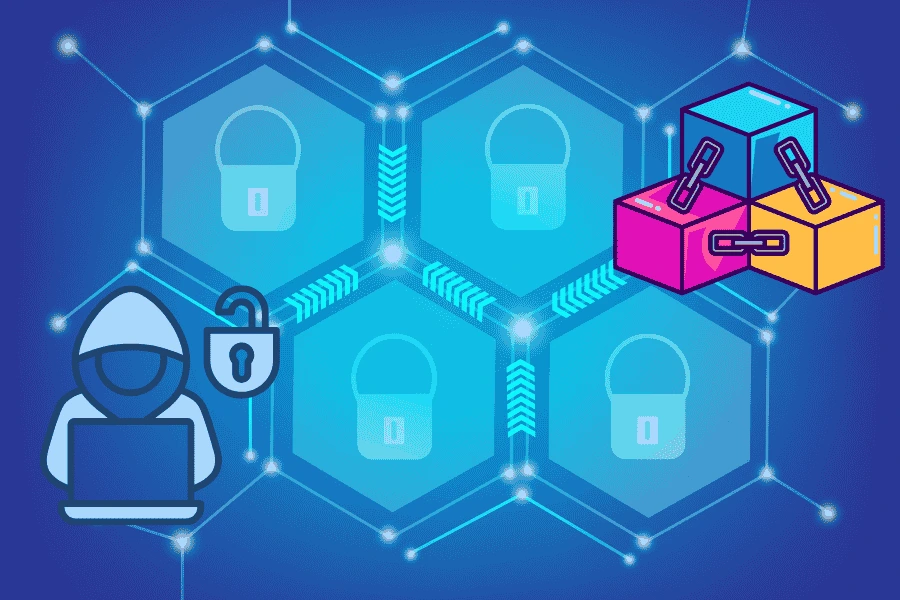Python's Role in Enhancing Blockchain Security and Privacy
Blockchain technology has revolutionized industries by offering a decentralized, transparent, and immutable ledger for recording transactions. While these features make blockchain highly secure, the security and privacy of blockchain networks still face challenges. As blockchain applications expand — from cryptocurrencies to supply chain tracking and beyond — ensuring the confidentiality, integrity, and privacy of the data being processed becomes paramount. Python, with its simplicity, versatility, and extensive library support, plays a significant role in enhancing the security and privacy of blockchain applications. This blog will explore the various ways Python can be leveraged to bolster blockchain security, including encryption techniques, privacy-enhancing protocols, and secure development practices. Python's readability and modularity also make it easier to audit code, reducing the risk of hidden vulnerabilities or exploits. In privacy-focused blockchain applications, Python can be used to develop secure multi-party computation, zero-knowledge proofs, and privacy-preserving smart contracts. Moreover, its compatibility with AI tools allows developers to implement anomaly detection systems that flag suspicious transactions or unauthorized access attempts

Understanding Blockchain Security and Privacy Challenges
Before diving into Python's role, let's first address the security and privacy challenges that blockchain networks face:
Data Privacy: While blockchain transactions are transparent and immutable, they can expose sensitive data (e.g., personal information or financial transactions).
Sybil Attacks: Malicious actors can create multiple fake nodes to manipulate the network, undermining its integrity.
51% Attacks: If a single entity gains control of more than 50% of the network's computational power, they can manipulate the blockchain, double-spend tokens, or disrupt the network.
Smart Contract Vulnerabilities: Errors or flaws in smart contract code can be exploited, leading to the loss of funds or data breaches.
Lack of Encryption: In many blockchain networks, data transmission and storage aren't always sufficiently encrypted, leading to potential data breaches.
Best Practices for Blockchain Security and Privacy Using Python
Use Strong Cryptographic Algorithms:
Using strong cryptographic algorithms is essential for ensuring the security and integrity of blockchain systems. Cryptography forms the backbone of blockchain by securing data, validating transactions, and maintaining the immutability of the ledger.
Test Smart Contracts Thoroughly:
Testing smart contracts thoroughly is a crucial step in ensuring their security, reliability, and correctness. Since smart contracts automate transactions and business logic on a blockchain, any vulnerability or bug in the code can lead to significant financial losses or breaches of trust
Implement Privacy Features:
Implementing privacy features in blockchain applications is crucial for protecting sensitive user data and ensuring confidentiality in a decentralized environment. While blockchains are known for their transparency, privacy can be enhanced through various cryptographic techniques that obscure transaction details without compromising the integrity of the network.
Regular Audits:
Regular audits are a vital practice for maintaining the security, integrity, and compliance of blockchain systems over time. Blockchain technologies, especially those involving smart contracts and decentralized applications (dApps), are inherently complex and can be vulnerable to emerging threats if not monitored consistently.
Security through Decentralization:
Security through decentralization is one of the foundational principles of blockchain technology, offering significant advantages in terms of data integrity, resilience, and resistance to attacks.
Conclusion
In conclusion, Python is a powerful tool for enhancing blockchain security and privacy, offering a rich set of libraries and frameworks that make implementing cryptographic protocols, encryption, and secure transaction handling straightforward. Its simplicity, flexibility, and extensive community support enable developers to build secure, privacy-focused blockchain systems that can withstand emerging threats. Whether securing smart contracts, ensuring data integrity, or implementing privacy-preserving features like zero-knowledge proofs, Python’s capabilities provide a strong foundation for creating robust, scalable, and trustworthy blockchain solutions. As blockchain technology evolves, Python will continue to be a key player in fortifying the security and privacy of decentralized systems.
- Lejhro bootcamp https://www.bootcamp.lejhro.com/data-science-course-training And
- https://www.bootcamp.lejhro.com/full-stack-development-course-training in just eight weeks.
Active Events
Data Scientist Challenges One Should Avoid
Date: August 14, 2024 | 7:00 PM (IST)
7:00 PM (IST) - 8:10 PM (IST)
2753 people have registered
Your Data Science Career Game-Changing in 2024: Explore Trends and Opportunities
Date: Aug 08, 2025 | 7:00 PM (IST)
7:00 PM (IST) - 8:10 PM (IST)
2811 people have registered
Bootcamps
Data Analytics Bootcamp
- Duration:8 weeks
- Start Date:October 5, 2024
Data Science Bootcamp
- Duration:8 weeks
- Start Date:October 5, 2024
